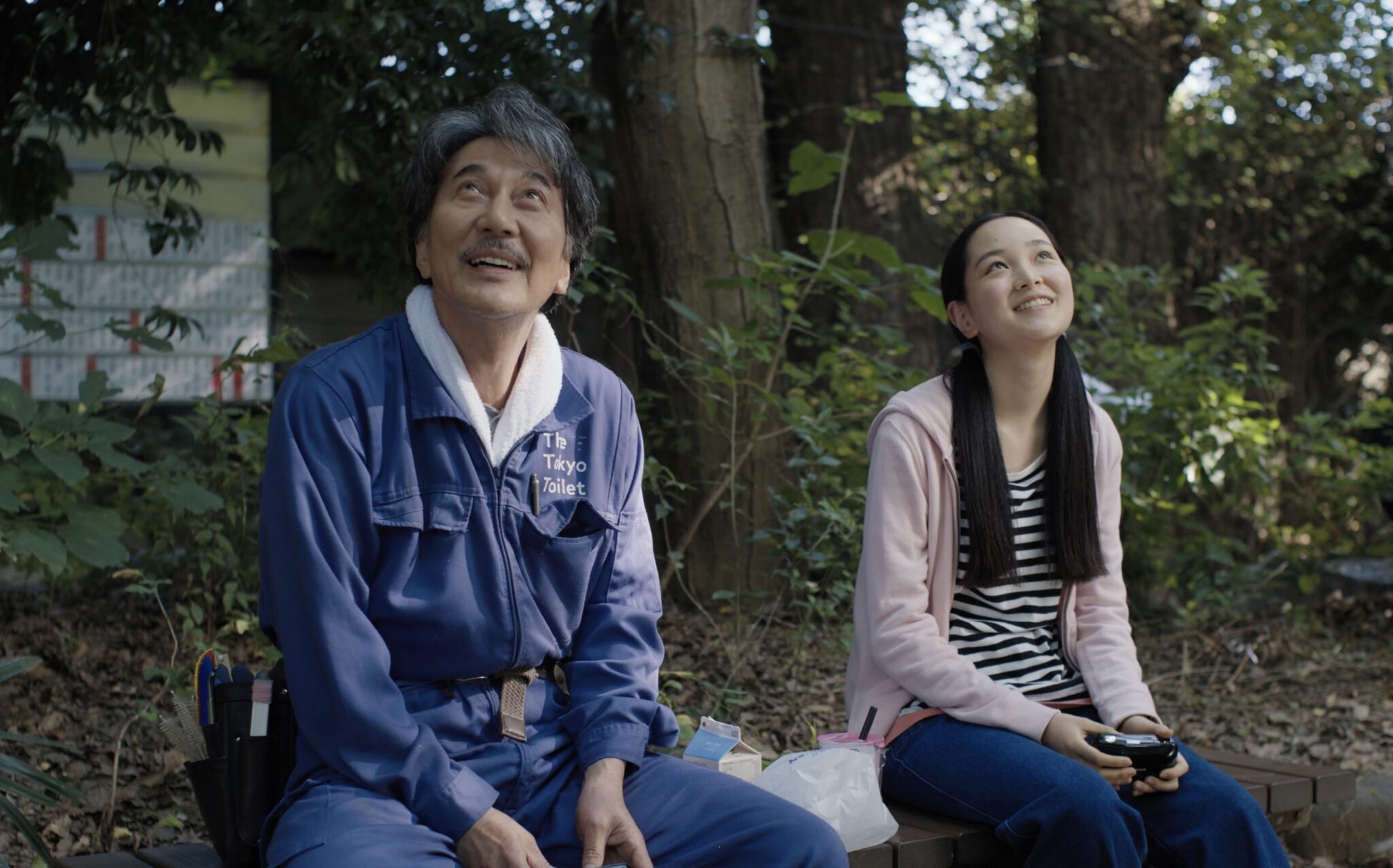“Next time is next time. Now is now.”
Those who have read many of my reviews will know that I have a special affinity for Ecclesiastes, a wisdom book in the Hebrew Scriptures. That book tells of the Teacher’s (aka Qoheleth) search for meaning in life. Films are never “about” Ecclesiastes, but several manage to take us on a similar search for meaning. The latest such film is Wim Wenders’s Perfect Days. The film was awarded the Prize of the Ecumenical Jury at Cannes and is Japan’s official submission for Best International Feature.
The film follows Hirayama (Kôji Yakusho, who won the best actor award at Cannes for this role), a janitor who spends his day driving around Tokyo cleaning public restrooms. This is hardly the kind of job most people would aspire to, but Hirayama is perfectly happy with his life. We learn his routine: get up, mist the tree seedlings that he keeps in his small apartment, go to work, have lunch at a shrine where he can enjoy nature (and take pictures of trees), come home, go to a public bath, have dinner where others are watching sports on tv, maybe go to a bar where the owner seems to have a special fondness for him, buy a book to read. Repeat.

Hirayama takes his job seriously. For example, he inspects toilets with a mirror to make sure he cleaned under the rim well. His co-worker doesn’t understand—it’s just going to get dirty again. Hirayama listens to cassettes (mostly western rock from the 60s and 70s) while driving between jobs. He’s collected the music that brings him happiness. He seems to find bliss in little things, even if he has to vacate a restroom because a drunk needs to make a new mess. He spends the few moments enjoying the world around him.
But the film is not just a look at how happy Hirayama is with this meager existence. Through the others we meet, we see that happiness is often elusive. His co-worker can only think about his girlfriend who seems indifferent because he has no money. Sports fans suffer when their teams fail. (We are told to “respect the sports teams and religion of others”) When he meets a man with a fatal illness, mortality enters the discussion.
When his niece shows up unexpectedly, we learn that he has been estranged from his family. His niece follows him through the day and begins to learn a bit of wisdom herself. When his sister shows up to collect her runaway daughter, we learn that the family is well-off, yet Hirayama seems to be far happier. (That is so Qoheleth in viewpoint.)
Wenders has a penchant for making films with a spiritual depth, whether they are narrative (Wings of Desire and Paris, Texas high among them) or documentaries (The Salt of the Earth and Pope Francis: A Man of His Word). Perfect Days gives us a chance to ponder (as Ecclesiastes does) what brings meaning and happiness to life. We might also consider the things we do that block us from finding bliss.
Perfect Days is currently playing in a special theatrical run.





